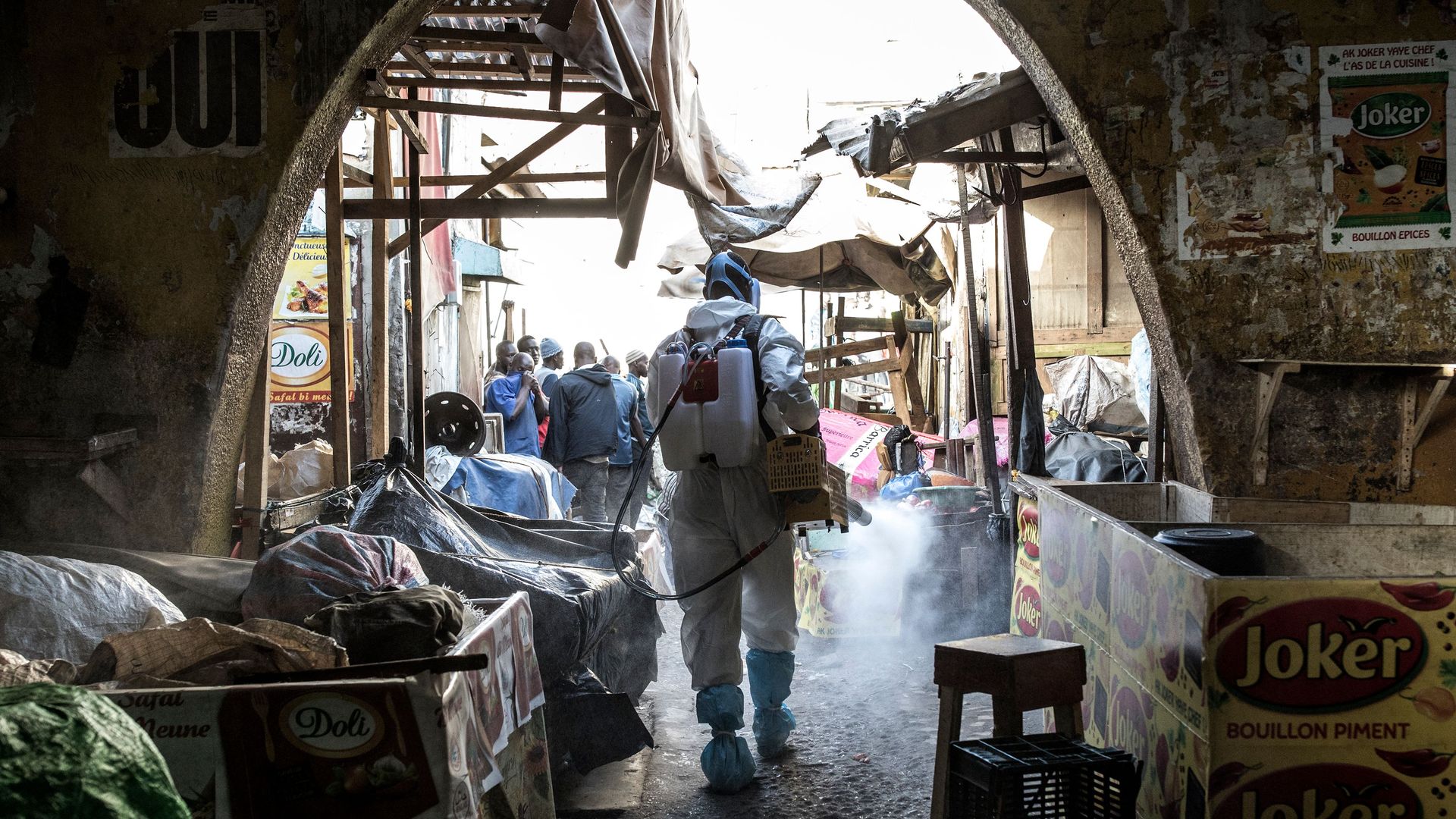Coronavirus could hit developing countries hardest
Add Axios as your preferred source to
see more of our stories on Google.

Disinfecting in Dakar, Senegal. Photo: John Wessels/AFP via Getty Images
The coronavirus is spreading most widely in countries that should be among the best equipped to handle it. There's no reason to expect that to remain the case.
Where things stand: 88% of new coronavirus cases confirmed on Wednesday came within the OECD club of wealthy nations, which together account for just 17% of the world's population. While that data is based on uneven and inadequate testing, Europe and North America are clearly in the eye of the storm.
What they're saying:
- “In three to six weeks, Europe and America will continue in the throes of this — but there is no doubt the center will move to places like Mumbai, Rio de Janeiro and Monrovia,” Ashish Jha, director of the Harvard Global Health Institute, told the Washington Post. “We need to be very worried.”
- There's deep concern about a coming shortage of ICU beds across the U.S. But on a per-capita basis, America has 330 times as many as Uganda, Robert Malley of the International Crisis Group and his brother Richard, an infectious disease doctor, note in Foreign Affairs.
- "[T]he countries least able to impose physical distancing and perform contact tracing also tend to have the most overstretched health-care systems and the most precarious economies," they write.
The big picture: In many poor countries that are now imposing lockdowns, millions live in cramped conditions without regular access to running water — and many simply can't afford to stay home. The effectiveness of those policies is thus uncertain, and the economic pain is severe.
- "If economies crash, silent killers such as diarrhea, malnutrition and infant mortality may sweep through populations," David Pilling notes in the FT (subscription).
The bottom line: This virus has brought unprecedented challenges to the Western world. But in the developing world, the consequences could be deeper still and far more difficult to recover from.
Go deeper: Debt crisis awaits in emerging markets
